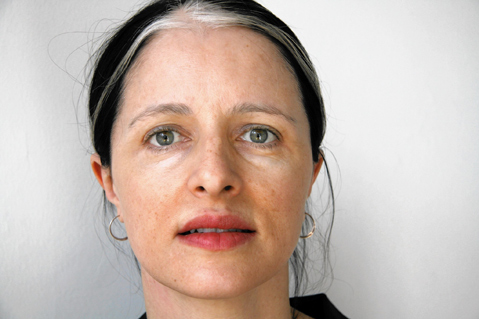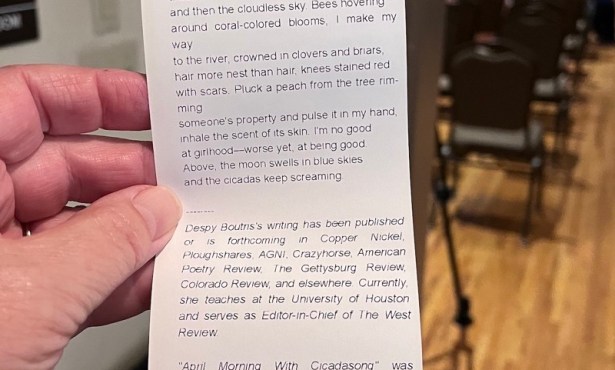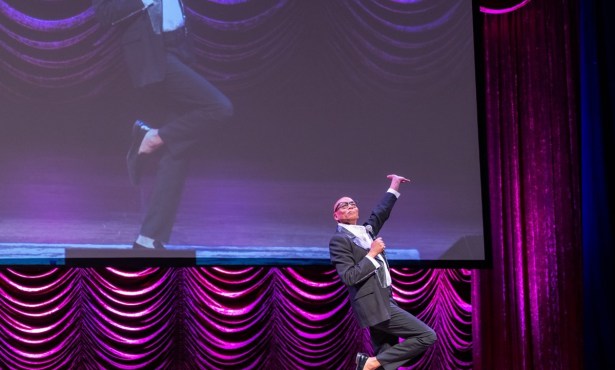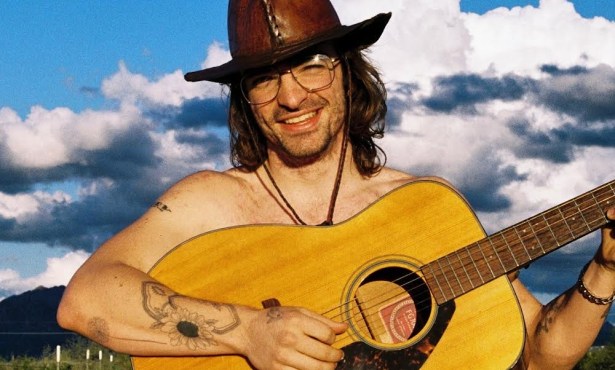Q&A with Larissa MacFarquhar
Author Explores Extreme Goodness in Book 'Strangers Drowning'

For 20 years, Larissa MacFarquhar grappled with extreme goodness, the kind of behavior that makes most of us look like schmucks. But worse, these do-gooders make us feel anxious or skeptical or outright dismissive. Do-gooders effectively carry the distress of the world so severely that they sacrifice their own basic pleasures to drastically help others. Most of us can’t — or don’t — live in such a way.
In her first book, Strangers Drowning, MacFarquhar strings together a handful of profiles, including the story of a couple who adopts 20 kids, some with disabilities. Then there is a man so obsessed with animal rights he forfeits basic cleanliness, deeming it a waste of time. There is woman who chooses a dreary, high-paying career just so she can give more money to people she’s never met. One couple starts a leprosy colony in rural India. As the title suggests, the book is necessarily thought provoking. But MacFarquhar has done much of the heavy lifting. Her prose reads easily and freely, though without sacrificing depth.
A decades-long writer at theNew Yorker, MacFarquhar has pursued long-form stories with incredible detail and aptitude. She often finds herself exhausted after an interview because she became deeply invested in the lives of those to whom she spoke. Ahead of her open-to-the-public talk at UCSB’s Campbell Hall on October 5, MacFarquhar spoke to The Santa Barbara Independent. Below is our conversation in an edited form.
You used the term do-gooder to describe your subjects. That sort of has a negative connotation.
Yes, but I don’t think that should be the case. I wanted to find people genuinely unconventional and extreme in their convictions but nonetheless human and likable and challenging. I wanted to pick people that I admired. I was hoping immersion in these few lives would help readers as well as me try to understand and come to terms with what living a life of moral extremity means and how we feel about it.
As readers, I think we tend to find good people sort of boring. Did you ever find yourself falling into that — bad characters are more intriguing?
No. Look, I’m not outside our culture. I understand why people like reading about bank robbers and murders. But evil in so many ways is easier. The people I write about are not just strong and self-sacrificing and good. They are extremely tough. They don’t care about what people think of them. Or they ignore it in a way very few of us are able to do.
Were you jealous of them?
Yes, absolutely! Most people ask me, “Did you find them really weird?” But, yes, I am jealous they have the strength and the toughness that is in line with their highest ideals. I do not live in a way that I find is the best way to live.
What’s one thing in particular that is special about them?
All of them share this capacity to share and imagine the pain of people they cannot see and don’t know. Most of us confronted with someone in pain right in front of us feel for them. We will be distressed. But the people I’m writing about can imagine that situation they do not see and do not directly hear.
Did your subjects ever feel as though — and I don’t mean this as an insult — that they were wasting time talking to you?
That’s so funny. Yeah, so many of them are obsessed with time management, but, no, they had made a decision that it was worthwhile for them. They all had a cause to promote, but they were all aware of how difficult it is to persuade people face-to-face.
How did you track them down?
It was difficult. Of course you can’t Google “extremely moral people.” I thought they might be organ donors. Another thing I thought, they might adopt special-needs kids, so I went to an agency in New York. The reason I tracked [Aaron Pitkin] down is he had given an interview, and he had said, “No one would buy a soda if there were a starving child next to the vending machine. Well for me there is always a starving child sitting next to the vending machine.”
What did you take away from your subjects?
I’ve learned about the dangers of preaching and scolding. While on the one hand I feel like it’s an international disgrace the way most countries have reacted to [the Syrian] refugees — our own country very much included. On the other hand, I think it’s complicated. Hearing people’s reaction to the Badeau family is very instructive in this regard. When I would tell people about the Badeaus — they would adopt one kid after another even though bringing new kids into the family made it difficult for the kids who were already there — many people find that awful. I find it admirable. I think the Badeaus are extreme people who drew limits for themselves that were the right limits for them. But many people [ask], how could they do it to their real children, meaning their biological children? Many people feel, how could they destroy the happiness of their family by bringing in new people who strain resources and all the rest of it?
How do you think we perceive do-gooders today as opposed to how Americans did decades ago?
I think one large historical factor that contributed to it was the end of the draft in this country. It’s been almost 70 years since there was a draft in this country for a just war — a war that was generally agreed to be just, which is to say World War II. Obviously there was a draft also for Vietnam, but most people were pretty ambivalent about that war. There is almost no one left alive in this country who thought it was totally normal — expected unexceptional — to give up a person closest to you to a larger cause.



